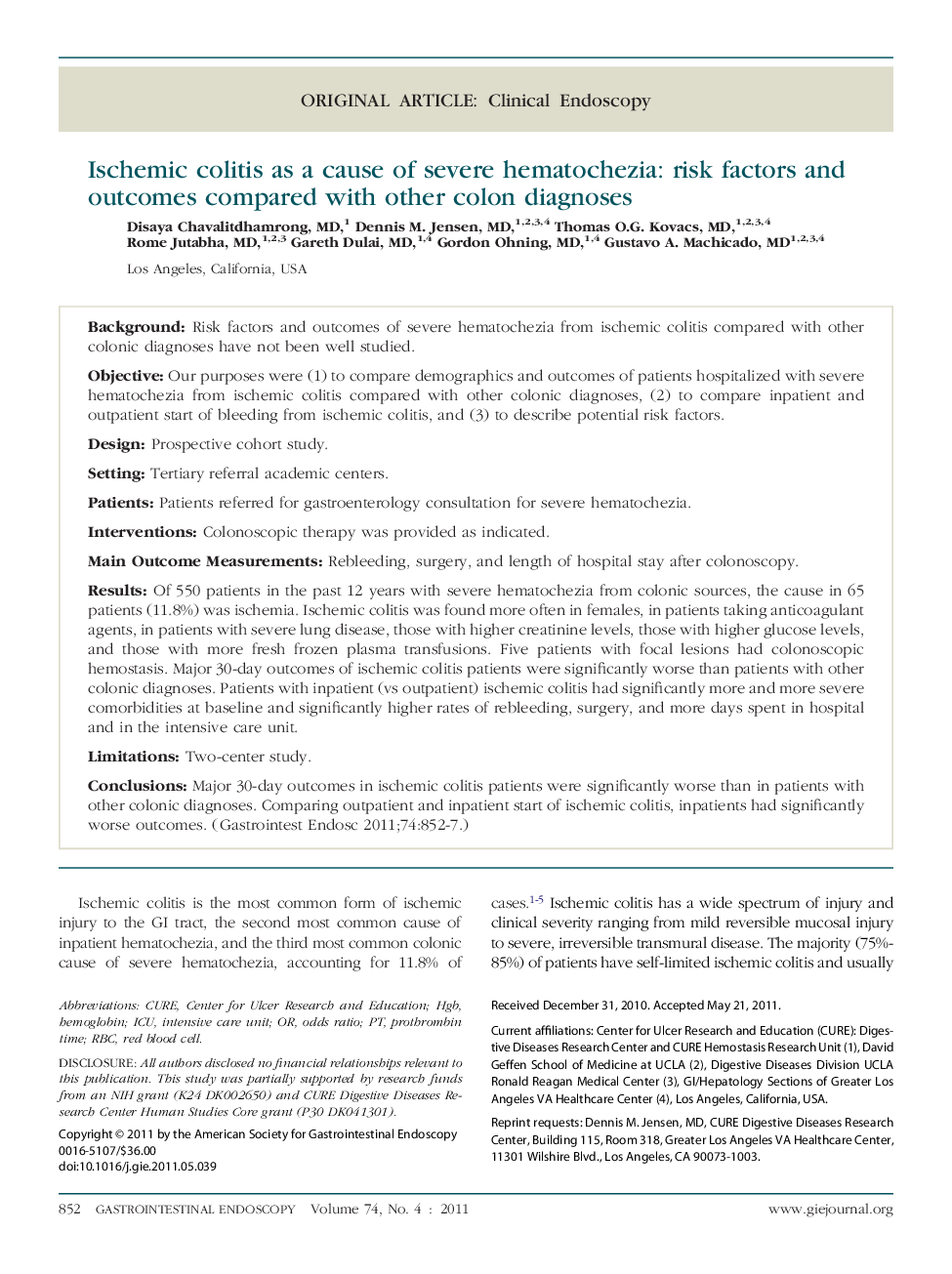| Article ID | Journal | Published Year | Pages | File Type |
|---|---|---|---|---|
| 3304531 | Gastrointestinal Endoscopy | 2011 | 6 Pages |
BackgroundRisk factors and outcomes of severe hematochezia from ischemic colitis compared with other colonic diagnoses have not been well studied.ObjectiveOur purposes were (1) to compare demographics and outcomes of patients hospitalized with severe hematochezia from ischemic colitis compared with other colonic diagnoses, (2) to compare inpatient and outpatient start of bleeding from ischemic colitis, and (3) to describe potential risk factors.DesignProspective cohort study.SettingTertiary referral academic centers.PatientsPatients referred for gastroenterology consultation for severe hematochezia.InterventionsColonoscopic therapy was provided as indicated.Main Outcome MeasurementsRebleeding, surgery, and length of hospital stay after colonoscopy.ResultsOf 550 patients in the past 12 years with severe hematochezia from colonic sources, the cause in 65 patients (11.8%) was ischemia. Ischemic colitis was found more often in females, in patients taking anticoagulant agents, in patients with severe lung disease, those with higher creatinine levels, those with higher glucose levels, and those with more fresh frozen plasma transfusions. Five patients with focal lesions had colonoscopic hemostasis. Major 30-day outcomes of ischemic colitis patients were significantly worse than patients with other colonic diagnoses. Patients with inpatient (vs outpatient) ischemic colitis had significantly more and more severe comorbidities at baseline and significantly higher rates of rebleeding, surgery, and more days spent in hospital and in the intensive care unit.LimitationsTwo-center study.ConclusionsMajor 30-day outcomes in ischemic colitis patients were significantly worse than in patients with other colonic diagnoses. Comparing outpatient and inpatient start of ischemic colitis, inpatients had significantly worse outcomes.
